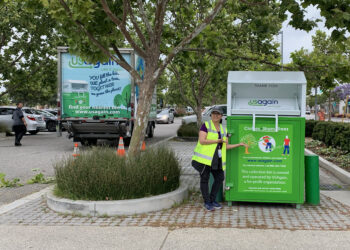South Carolina’s e-scrap program will be seeing significant changes in the coming year after the governor signed House Bill 4775 into law.
The bill eliminates weight targets for electronics collection and instead sets up easier access to drop-off sites, reforming the state’s current extended producer responsibility (EPR) program for electronics to more closely resemble that of Illinois.
South Carolina is now the second state, after Illinois, to move to a “clearinghouse-style” program that focuses on a convenience metric for drop-off sites and requires manufacturers to pay to recycle all electronics returned.
HB 4775 first passed the state House of Representatives and Senate in April and May, respectively, but then spent a month in conference committee after the House rejected a Senate attempt to link an unrelated bill on plastic pellets to it.
The amended bill without the add-on passed the House with a vote of 109-0 and the Senate with a vote of 42-0 on June 15. Republican Gov. Henry McMaster signed it June 17.
Changes on the horizon
House Bill 4775 requires one collection site in each county with a population under 100,000; two sites in each county with a population between 100,000 and 200,000; and three sites in counties with over 200,000 people.
A collection site could also be swapped out for four, one-day collection events. Retail collection sites are not considered collection sites for the purposes of the convenience standards.
Under the bill, registered collectors participating in a collection program supervised by a county or solid waste authority would be allowed to collect a fee for each monitor or TV accepted.
The manufacturer clearinghouse would submit all program details to the state, but it would not make individual arrangements with recyclers and other contractors for service.
Starting in 2023, recoverers – defined as an entity that reuses or recycles a covered device – that store, consolidate or process covered devices will be required to register with the South Carolina Department of Health and Environmental Control and pay a $3,000 registration fee.
An existing requirement that manufacturers pay an annual registration fee of $3,500 is retained by the bill. Manufacturers of covered devices that sell 100 or fewer devices per year would be exempt from registration or penalty. The old law set the level at 500 or fewer devices.
Manufacturers will not be mandated to participate in a clearinghouse, as the bill gives them the option to act independently to fulfill the requirements of the law.
Under the new law, a stakeholder group will be formed on June 1, 2026 to provide a report on operational and financial impacts of the program on local governments and manufacturers and other concerns or recommendations.






























